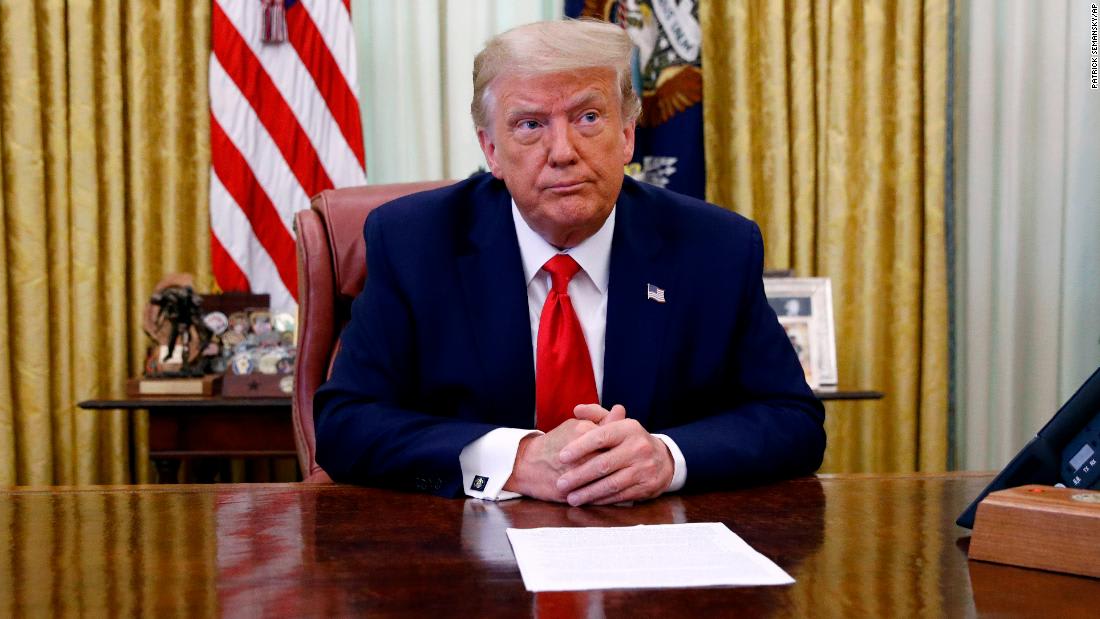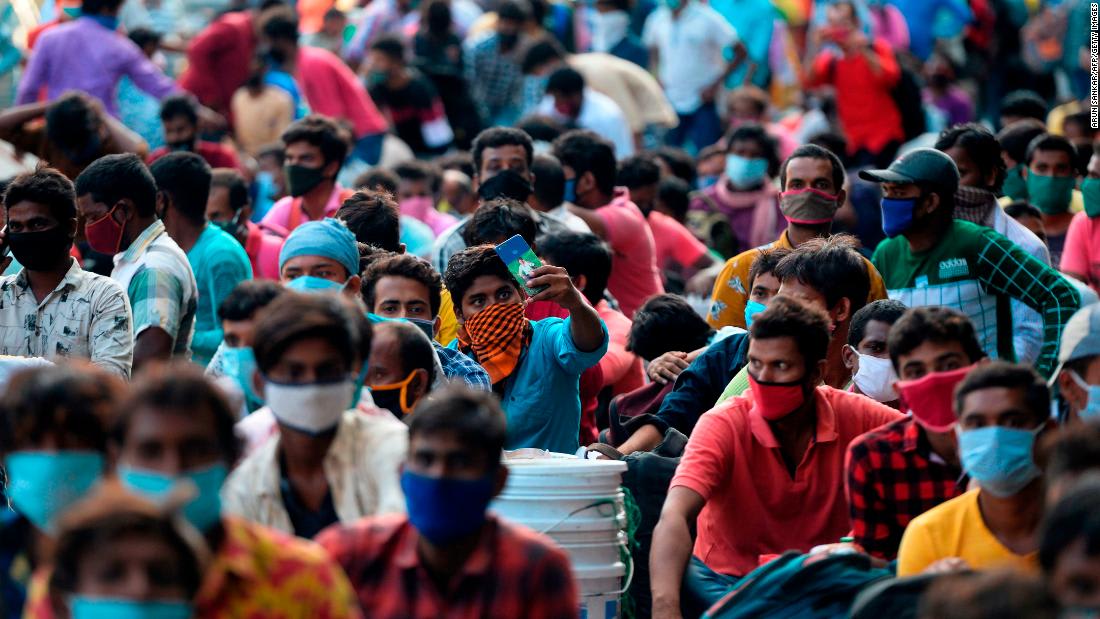Boris Johnson announces further easing of England's lockdown
Boris Johnson has announced major changes to England's coronavirus restrictions as the country continues to reopen.
From August 1, employers can choose whether or not their employees work from home.
"Whatever employers decide, they should consult closely with their employees."
Beauty salons will be able to reopen from August 1 and indoor live performances can also resume if successful pilots have been carried out.
Wedding receptions for up to 30 people will also be permitted from that date but nightclubs remain closed under the updated guidance.
Johnson added that schools, colleges and nurseries would be open to all students from September.
"Throughout this period we will look to allow more close contact between friends and family," he added, cautioning that the easing of restrictions is conditional on cases continuing to fall.
The Prime Minister also announced sweeping new powers for local authorities as the UK government's focus turns to local lockdowns as opposed to a national one.
"We can control [the pandemic] through targeted local action," he said.
"It has to be right that we take local actions in response to local outbreaks."
Johnson also announced £3 billion ($3.7b) in extra funding for the NHS in England to help it prepare for the winter months. Extra health funding will also be granted to Scotland, Wales and Northern Ireland.
The PM said his government was "hoping for the best, but planning for the worst."
Skin rash should be considered Covid-19 symptom, researchers say
Skin rashes and reddish bumps on fingers and toes should be considered a key coronavirus symptom, researchers from King's College London (KCL) have said.
The skin rashes can occur in the absence of any other symptoms, a new pre-print study led by the university suggests.
Key coronavirus symptoms that are widely accepted include fever, cough and shortness of breath, but a range of other signs have been suggested, including the loss of smell and taste in some patients.
The KCL researchers used data from the Covid-19 Symptom Study app, which is submitted by around 336,000 people in the UK.
They found that 8.8% of people who tested positive for coronavirus reported a skin rash as a symptom, compared with 5.4% of people who tested negative.
The team then set up a separate online survey, gathering information from nearly 12,000 people with skin rashes and suspected or confirmed Covid-19.
They found that 17% of respondents who tested positive for the virus reported a rash as the first symptom of the disease. For 21% of people who reported a rash and had confirmed Covid-19, the rash was their only symptom.
"However, it is important that people know that in some cases, a rash may be the first or only symptom of the disease. So if you notice a new rash, you should take it seriously by self-isolating and getting tested as soon as possible.”
The researchers believe the rashes fall into three distinct categories. The first is a hive-type rash, which can come and go quite quickly over a few hours.
"It can involve any part of the body, and often starts with intense itching of the palms or soles, and can cause swelling of the lips and eyelids. These rashes can present quite early on in the infection, but can also last a long time afterwards," KCL said in a statement.
The second type of rash is a prickly heat one, in which areas of small red bumps can occur anywhere across the body but particularly on the elbows and knees as well as the back of the hands and feet.
The third type involves red or purple bumps appearing on the fingers and toes.
"This type of rash is most specific to Covid-19, is more common in younger people with the disease, and tends to present later on," the team said.
"Early reporting of Covid-associated rashes by members of the public and recognition of their significance by frontline healthcare practitioners ... may increase the detection of coronavirus infections and help to stop the spread.”
Spain to slaughter 92,700 minks on farm after some test positive for Covid-19
From CNN's Laura Pérez Maestro in Madrid
Spanish authorities have ordered the slaughter of 92,700 minks on a farm in the eastern city of Teruel, after dozens of minks tested positive for coronavirus.
The farm came under scrutiny on May 22, when seven farm workers tested positive for the virus. The General Directorate of Food Quality and Health locked it down, letting no animals or animal by-products enter or leave the farm.
Several rounds of testing: Seven animals were randomly selected, and all tested negative on June 3, the Department of Agriculture, Livestock and Environment of the regional Aragon government said in a statement Thursday.
On June 8, 20 samples were tested again, one of which gave "non-conclusive positive evidence" for the virus.
A third test on June 22 found five positive cases out of 30 animal samples.
Knowing that mink slaughter would cause "serious economic damage to the owner of the farm," the department ordered a fourth test, for 90 specimens. The results came back on Monday: 78 animals, more than 86% of the total samples, tested positive.
Order for slaughter: After receiving the results, the regional government ordered the Department of Agriculture to slaughter all 92,700 minks on the farm as a preventative measure.
Boris Johnson to boost health spending by $3.7B ahead of feared second wave
From CNN’s Sarah Dean in London
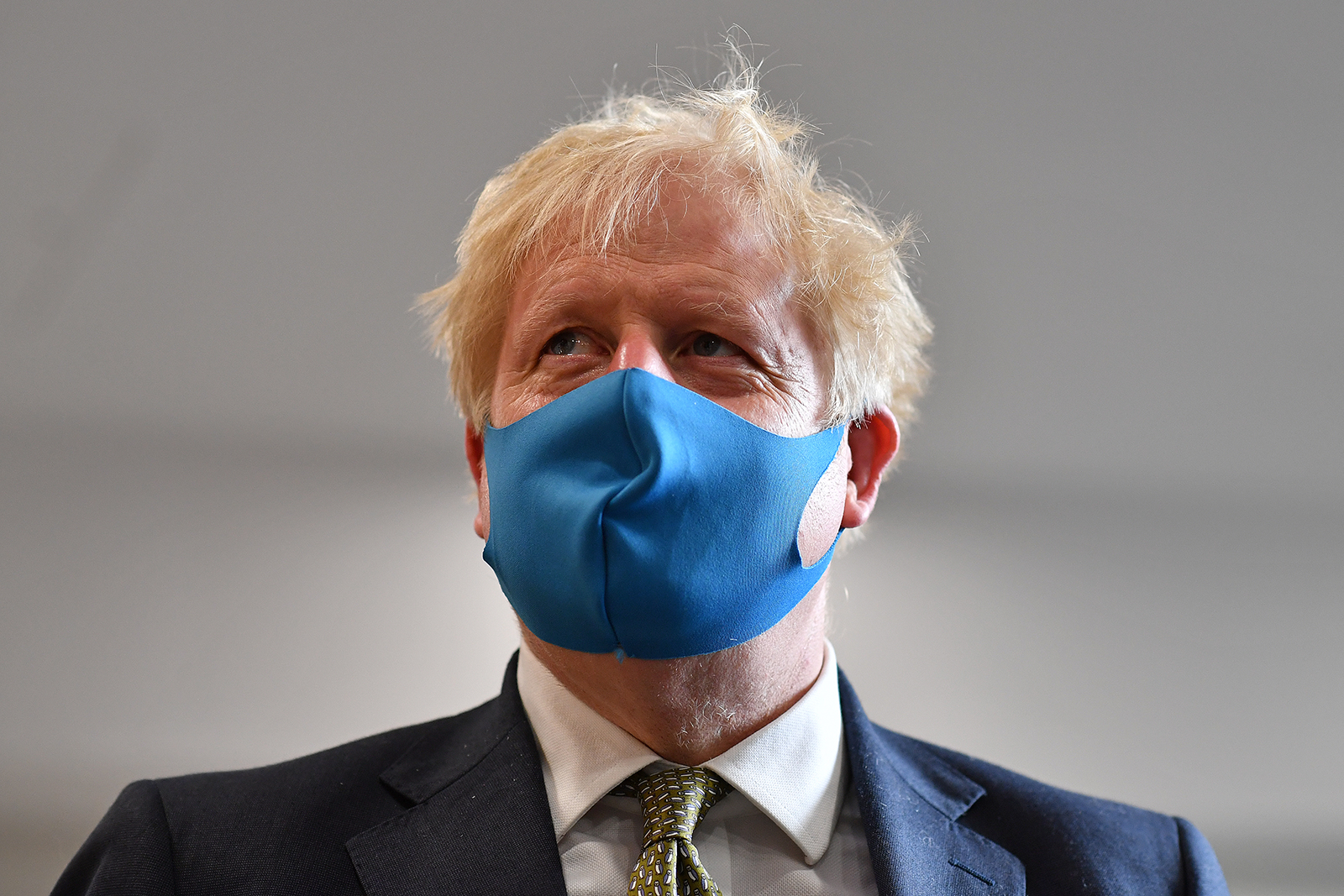 Britain's Prime Minister Boris Johnson, wearing a face mask in London on July 13. Ben Stansall/WPA Pool/Getty Images
Britain's Prime Minister Boris Johnson, wearing a face mask in London on July 13. Ben Stansall/WPA Pool/Getty ImagesUK Prime Minister Boris Johnson is expected today to announce more than £3 billion ($3.7 billion) in additional funding for the country’s National Health Service (NHS), ahead of a feared second wave of coronavirus.
“Extensive measures are already being put in place to ready the NHS -- both for the risk of a second peak, and to relieve winter pressures on A+E and emergency care,” said a Downing Street statement.
The funding, which will be for the NHS in England only, will be available immediately. It will allow the NHS to continue using additional private hospital capacity, and maintain the emergency field hospitals set up in the first wave of the pandemic until the end of March.
“This will provide additional capacity for Covid patients should it be needed, and allow the NHS to carry out routine treatments and procedures,” Downing Street said.
Press conference planned: Johnson will speak at a press conference later today, where he will unveil the next stage of the government's Covid-19 recovery strategy “road map." He is also expected to confirm plans to increase testing capacity to half a million tests a day by the end of October.
Thanks to the hard work and sacrifices of the British people, the virus is under control and we have eased restrictions in a cautious, phased way,” a Number 10 spokesperson said.
“But the Prime Minister is clear that now is not the time for complacency, and we must make sure our NHS is battle ready for winter.”
Some Arizona patients are fainting from heat while waiting to get tested for Covid-19
In Arizona, scorching summer temperatures are causing additional problems for some residents waiting to get tested for Covid-19.
"There are people who are waiting in-line to get tested and are fainting, literally, while waiting to get a test. And they're coming to the ER, because ironically, they were waiting for a test and fainted," said Dr. Murtaza Akhter, an emergency physician with Valleywise Health Medical Center in Phoenix, on Thursday.
Arizona hospitals are struggling to deal with the influx of Covid-19 patients, which Akhter, describes as a "clogged sink with the faucet still running."
On Thursday, Arizona reported 3,259 new cases and 58 additional deaths. That brings the state's total to 134,613 cases.
The US, Brazil and India: The only three countries with more than a million cases
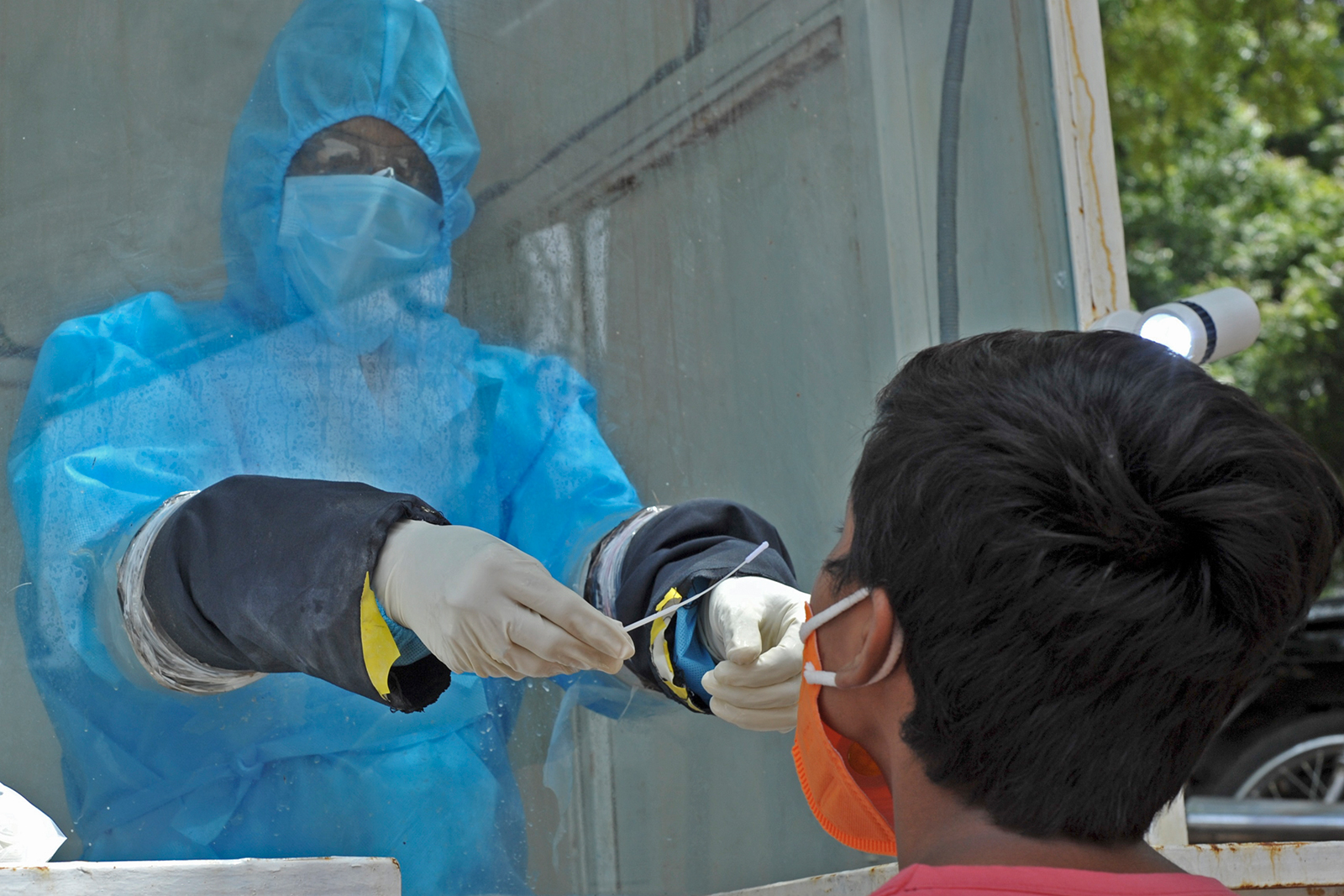 A health worker wearing Personal Protective Equipment (PPE) gear collects a swab sample of a boy at a government free testing centre in Hyderabad, India on July 17. Noah Seelam/AFP/Getty Images
A health worker wearing Personal Protective Equipment (PPE) gear collects a swab sample of a boy at a government free testing centre in Hyderabad, India on July 17. Noah Seelam/AFP/Getty ImagesEarlier today, India surged past one million cases, becoming the third country in the world to do so, after the United States and Brazil.
In all three countries, the pandemic is wreaking havoc on healthcare systems, economies, and residents' daily lives.
The United States has the highest number of cases in the world, with more than 3.5 million infections recorded since the pandemic began. There were more than 77,000 new cases today alone.
New daily cases have more than tripled in just a few weeks; the figure had hovered around 25,000 in mid-June.
Hard-hit states are bringing in hundreds of medical staff from other states to help, and hospitals running out of ICU beds. In Arizona and Texas, hard-hit counties have brought in refrigerated trucks as morgues fill up.
In Brazil, cases are surging by tens of thousands every day. The country now has 2,012,151 cases and 76,688 deaths, according to data from Johns Hopkins University.
The administration has come under fire for its handling of the pandemic. President Jair Bolsonaro, who tested positive last week, previously dismissed the virus as just a "little flu." He has criticized local leaders imposing lockdowns, and implied they were inflating death tolls to make the federal government response look bad.
Meanwhile, the country’s Health Ministry continues to be administered by an active duty military man with no public health experience, appointed as interim Minister two months ago.
In India, the health ministry has reported 1,003,832 total cases and more than 25,600 deaths. It's also seeing a surge of infections, reporting its highest daily jump in new cases between Thursday and Friday.
Across the country, critically ill virus patients are being turned away from public and private hospitals for lack of beds, staff and equipment, as healthcare infrastructure buckles under the pressure.
The poorest citizens are the hardest hit. About 74 million people live shoulder to shoulder in overcrowded urban slums, where there is little running water or sanitation and social distancing is impossible.
Trump's outrageous refusal to lead is making the pandemic worse
Analysis from CNN's Stephen Collinson
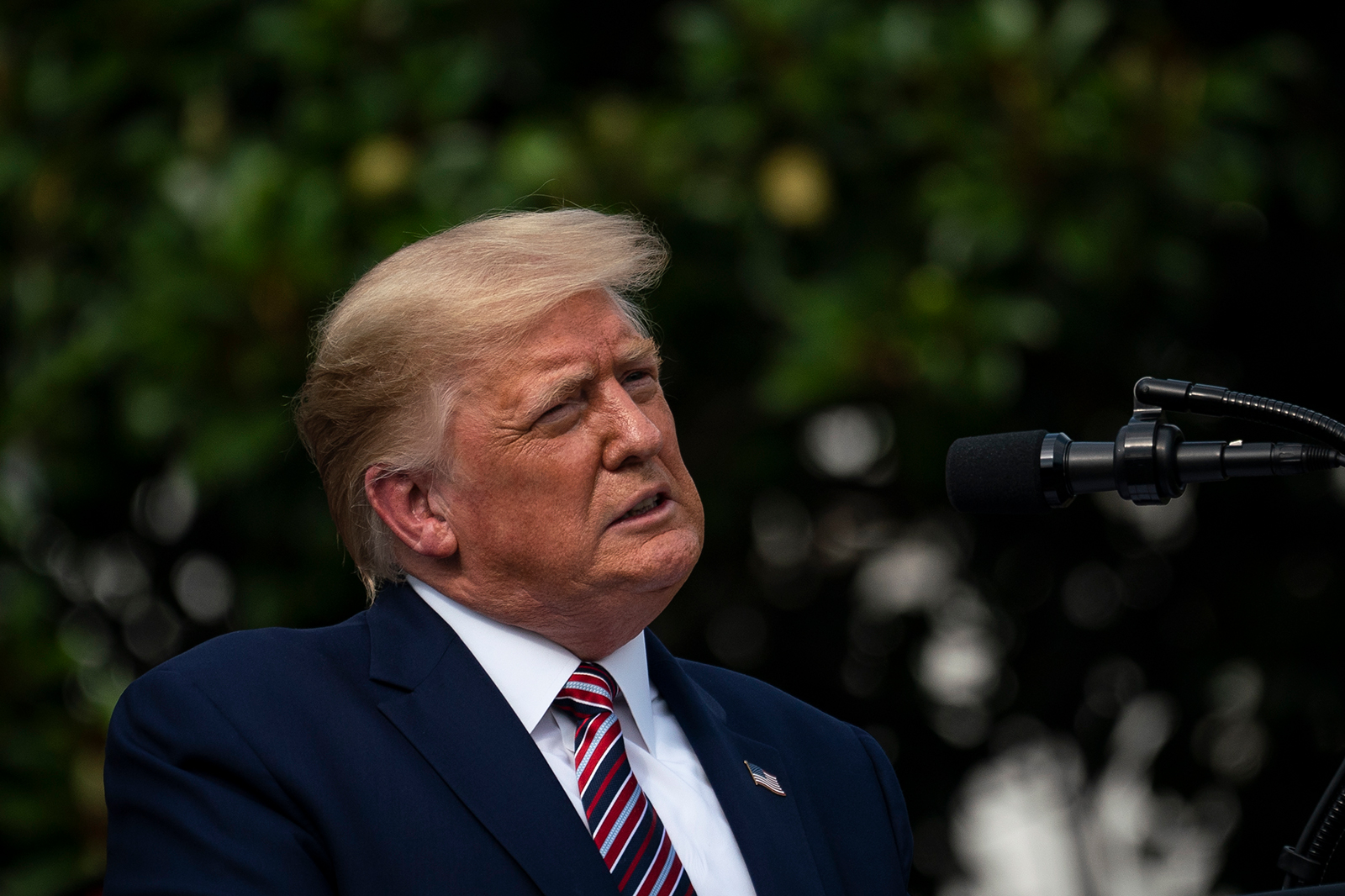 President Donald Trump speaks during an event on the South Lawn of the White House in Washington, DC on July 16. Drew Angerer/Getty Images
President Donald Trump speaks during an event on the South Lawn of the White House in Washington, DC on July 16. Drew Angerer/Getty ImagesThe United States just recorded more than 77,000 new cases of Covid-19, the most ever in a single day. But President Donald Trump wants to talk about dishwasher reform.
Trump's refusal to use his full powers of his office and the government to confront the worst domestic threat since World War II is looking more negligent, callous and politically self-defeating with each virus ravaged day that passes.
Not only is Trump refusing to act in a manner appropriate to the magnitude of the emergency, he is using the country's loudest megaphone in a way almost guaranteed to make it worse, from presiding over a White House campaign to discredit the lifelong work of Dr. Anthony Fauci -- a new front in his war on science and truth -- to undermining efforts by local officials to convince people to wear masks to slow the spread of the disease.
Trump's intransigence is more notable since he's happy to use presidential power -- often in an anti-constitutional way -- in pursuit of personal and political gain. For instance, in coercing Ukraine to interfere in the election and in commuting the jail term of his political dirty trickster Roger Stone.
This week, as states such as Florida, Texas and Arizona have set records for coronavirus infections and intensive care units and morgues have filled up, has exposed the willful blindness of a White House that seems bio-sealed from the reality of the pandemic.
Read the full analysis here:
Japan reports highest daily jump in new cases since April
From CNN’s Junko Ogura in Tokyo
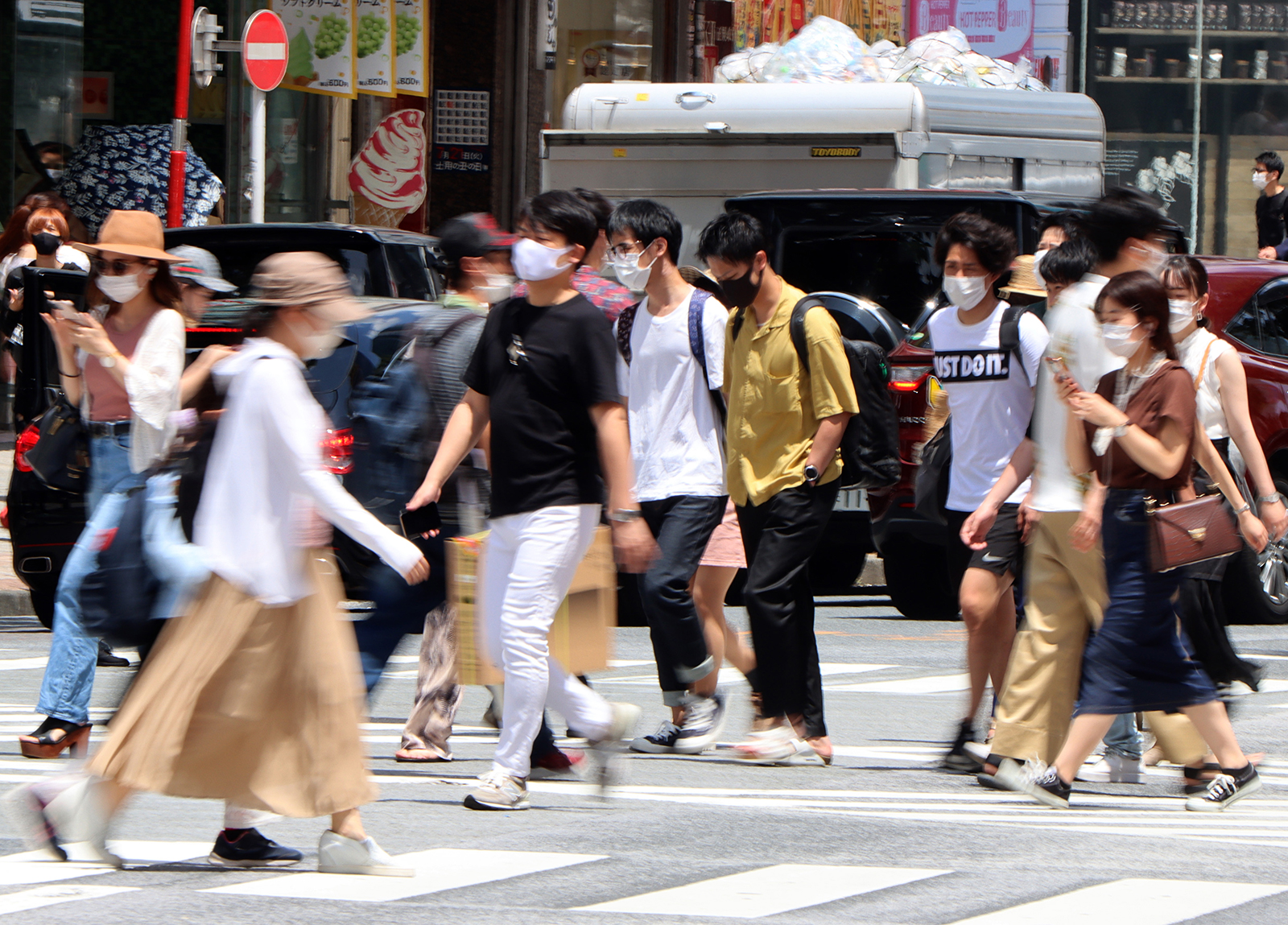 People walk on the Shibuya crossing in Tokyo on July 12. Yoshio Tsunoda/AFLO/Shutterstock
People walk on the Shibuya crossing in Tokyo on July 12. Yoshio Tsunoda/AFLO/ShutterstockJapan reported 623 new cases in the past day, the health ministry announced on Friday -- the highest daily jump in new coronavirus cases since April 10.
The new cases include 286 from Tokyo, the highest daily jump in the capital so far.
The prefectures of Kanagawa, Chiba and Saitama, as well as the country’s second-largest city Osaka, also saw their highest number of daily new cases since the country lifted its state of emergency on May 25.
No new deaths were reported across the country, the ministry said.
Japan has a total of 24,185 cases with 998 deaths.
India's stark wealth divide becomes a matter of life or death during the pandemic
From CNN's Helen Regan and Manveena Suri
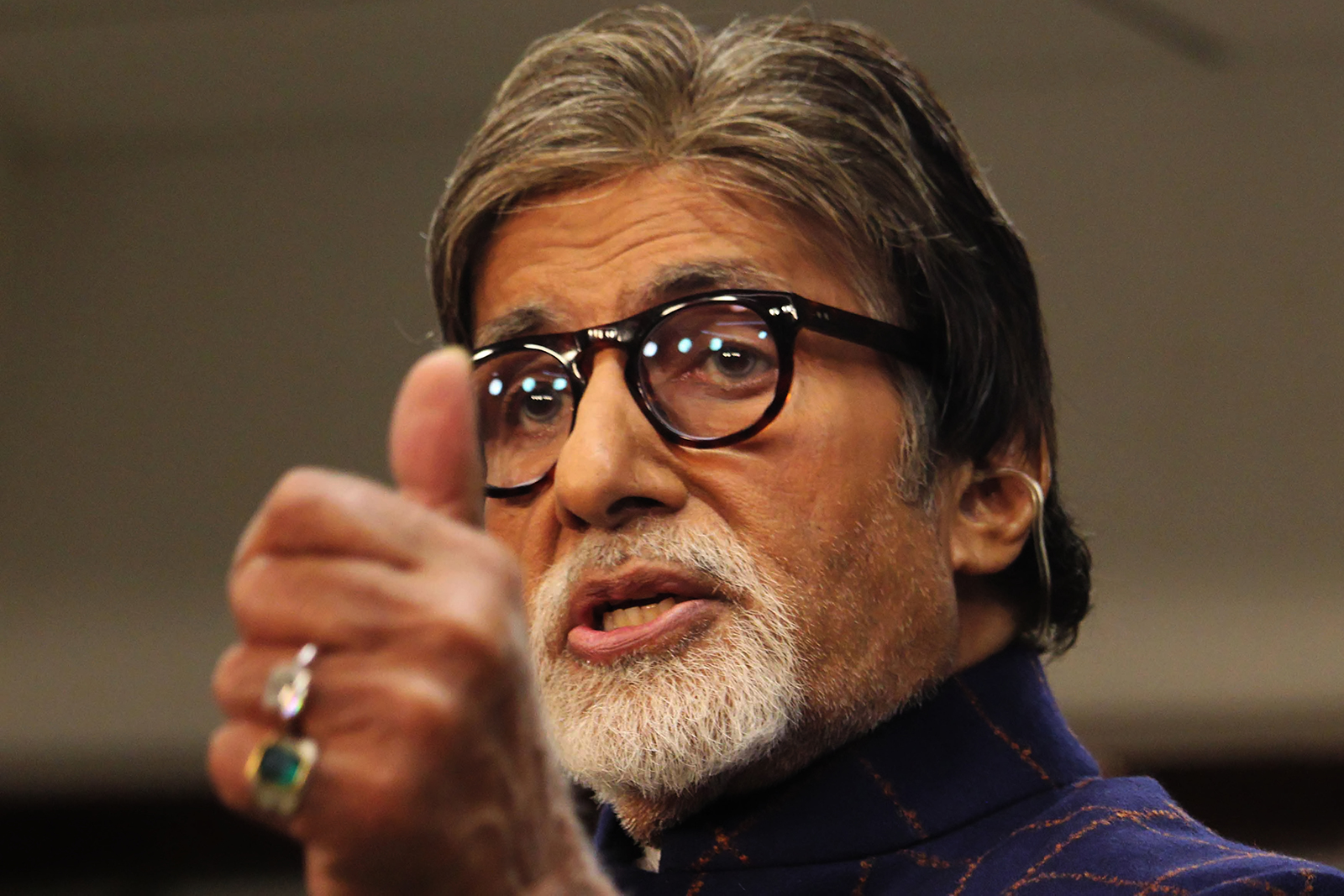 Indian actor Amitabh Bachchan gestures during a launch of NDTV Banega Swasth India season 6 in Mumbai, India on August 19, 2019. Himanshu Bhatt/NurPhoto/Getty Images
Indian actor Amitabh Bachchan gestures during a launch of NDTV Banega Swasth India season 6 in Mumbai, India on August 19, 2019. Himanshu Bhatt/NurPhoto/Getty ImagesWhen Amitabh Bachchan tested positive for Covid-19 last weekend, the Bollywood legend was immediately admitted to an isolation unit at Mumbai's top Nanavati Hospital, despite having mild symptoms.
Across India, meanwhile, critically ill virus patients are being turned away from public and private hospitals for lack of beds, staff and equipment, as healthcare systems buckle under the pressure of the escalating pandemic.
Bachchan's treatment threw into sharp relief India's stark wealth divide -- which the coronavirus pandemic has at times made a matter of life or death.
While more than 270 million people across India were able to climb out of poverty between 2006 and 2016, the country remains one of the world's most unequal, with the top 10% of the population holding 77% of the total national wealth -- and that gap only continues to widen, according to Oxfam.
As well as unequal access to healthcare, for those who live shoulder to shoulder in overcrowded urban slums -- about 74 million people -- social distancing is impossible. There is little running water or sanitation, putting them at greater risk of contacting the virus.
While India's rich can buy better healthcare and isolate more easily, with the country's borders closed and international flights mostly canceled, they too have to stay and face the crisis.
As the pandemic holds up a mirror up to society, experts say India's rich need to evaluate how the country depends on and treats informal laborers who make up the majority of the country's workforce.
Read the full story here:

 5 years ago
630
5 years ago
630 